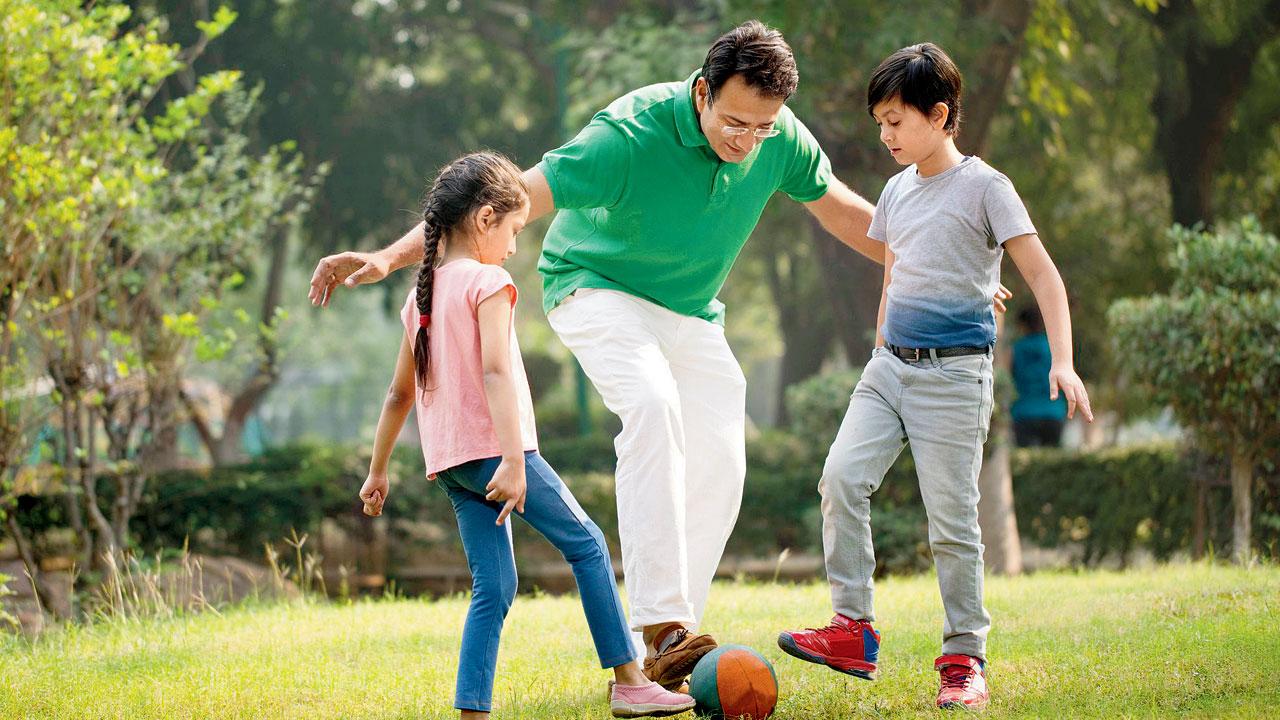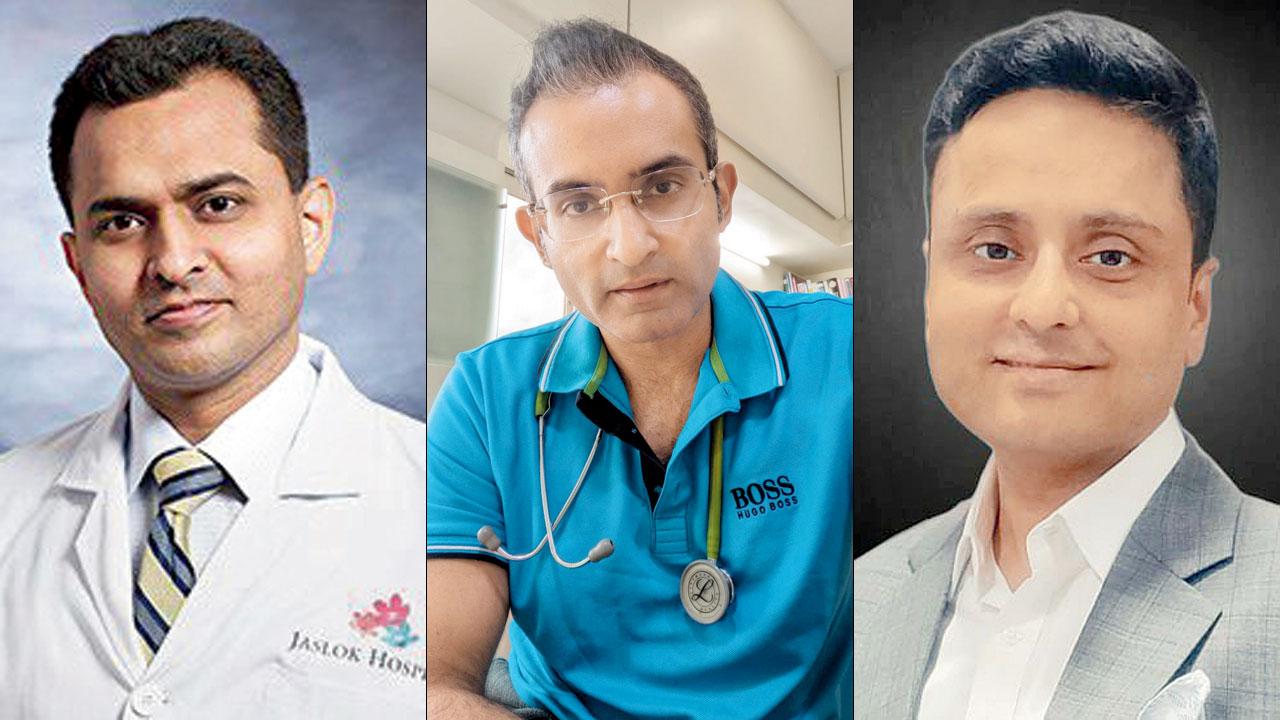After a recent study associated poor heart health with sedentary lifestyles at childhood, city experts look into the causes and results of inactivity on the heart and ways to better your lifestyle

Make regular physical activity and proper diet a lifestyle for your family
We know that regular physical activity helps maintain a healthy heart. But do we overlook the importance of heart health when we are young? Cumulative accelerometer-based sedentary time from childhood through young adulthood with progressive left ventricular remodelling in British youth: a 13-year longitudinal study — presented this month at the European Society of Cardiology’s (ESC) Congress 2023 in Amsterdam — by lead study author Dr Andrew Agbaje of the University of Eastern Finland, showed that inactivity in kids can increase the risk of heart diseases at later stages in life.
ADVERTISEMENT

Regular physical activity is vital to maintain a healthy heart
Data of this study was collected from Children of the 90s, one of the largest global studies measuring lifestyle, included 766 children (55 per cent girls and 45 per cent boys) and researched across the ages between 11 and 24. It showed that a lack of physical activity for nearly six hours a day at age 11 increased to eight hours a day in adolescence and later to nine hours a day in adulthood. The study associated sedentary lifestyles between the ages 11 to 24 years with an increase in the left ventricular mass in the 17-24 age group.
The worrying findings pose the question: are Indian children at risk too? What can parents do to battle sedentary lifestyles and ensure better heart health for their children is not compromised? Dr Sylvia D’Souza, consultant paediatric cardiologist at Wockhardt Hospitals, Mira Road, explains the importance of physical activity for the heart, “Regular exercise helps strengthen the heart, allowing it to pump blood more efficiently and effectively. Without this exercise, the heart muscle weakens over time, making it less capable of performing its crucial function.”
 Inactivity heightens heart disease risk factors like obesity and hypertension, fostering future heart problems
Inactivity heightens heart disease risk factors like obesity and hypertension, fostering future heart problems
Dr Sylvia D’Souza adds that inactivity can lead to unhealthy weight gain, which puts additional strain on the heart, while excess body weight increases the risk of developing conditions such as high blood pressure and high cholesterol levels at an early age. These factors contribute to the development of cardiovascular diseases later in life. What are the dangers of increased ventricular mass? Dr Vaibhav Dedhia, Jaslok Hospital and Research Centre, explains, “An increase in left ventricular (LV) mass, known as left ventricular hypertrophy (LVH), is a response of the heart to various stressors typically an increased workload due to conditions like hypertension (high blood pressure), valvular heart disease, or certain genetic factors.”
Dr D’Souza and Dr Dedhia note that LVH, associated with high blood pressure, can also lead to impaired cardiac function, increased risk of arrhythmias, reduced blood supply, risk of heart attacks and strokes, heart failure, reduced exercise tolerance, etc. Sharing a guideline for the duration of exercise required, Dr Nihar Parekh, founder of Second-Opinion Online Consultation for Children (SOCC) and co-founder of Cheers Child Care shares, “At 11, kids require one to two hours of mixed moderate-vigorous activity daily. Ages 15 and 17 demand similar commitment, while 24-year-olds should aim for 150 minutes of moderate exercise, weekly.”

Dr Fazal Nabi, Dr Nihar Parekh and Dr Shreepal Jain
Noting an increasing number of cases of excessive weight gain in adolescents due to sedentary lifestyles since the COVID-19 pandemic, Dr Shreepal Jain, consultant paediatric and foetal cardiologist at Bai Jerbai Wadia Hospital for Children, reasons that an increase in online classes, amplified screen time, and easy availability of junk food are the culprits. With more importance given to competitive examinations, exercise for the body and mind can get overlooked or children may not have enough energy to engage in physical exercise in the midst of a tiring school day.
“As a result, young patients have been coming with complaints of breathlessness on exertion [mainly due to the deconditioning effect]. Heart diseases are increasingly being noted in younger patients in their 30s. However, the process begins much earlier in childhood due to a sedentary lifestyle and high intake of processed and junk food. The lower age limit for heart problems is likely to be reduced further in the future,” says Dr Jain.
Dr Fazal Nabi, director of paediatrics at Jaslok Hospital and Research Centre adds, “In the pediatric age group, the indirect effects of a sedentary lifestyle like palpitations and chest pain are seen. Good adolescent health is the foundation for better future health; poor diet, stressful lifestyle, excess junk food including coloured drinks and coloured foods are some other factors that put heart health at risk in later life.” Dr Nabi recommends a balanced diet of proportionate fats, carbohydrates and proteins, an active lifestyle, no stress with no added pressure on kids, and regular exercise as a must for good heart health.
Support better heart health from an early age
1 Engage in at least 60 minutes of moderate to vigorous physical activity every day.
2 Reduce screen time.
3 Include a variety of vegetables, fruits, whole grains, proteins, and healthy fats in your daily diet and reduce limit sugary and processed foods.
4 Maintain good sleep hygiene for your age.
5 Do not smoke and avoid second-hand smoke as it contributes to the narrowing of blood vessels, high blood pressure, and decreased oxygen levels in the body.
6 Practise good oral hygiene
Inputs from Dr Vaibhav Dedhia and Sylvia D’Souza
Case Study 1

Rajesh Shah (name changed), 17, engineering student, complained of severe abdominal pain. Investigations showed thrombotic infarcts in the small intestine and left kidney. The 2D Echo examination showed a large clot in the left ventricle. There was dysfunctional muscle supplied by the LAD artery. Due to a unhealthy lifestyle, this young boy had suffered a massive anterior wall MI [anterior myocardial infarction].
- Dr Vaibhav Dedhia
Case Study 2

Academic pressure kept Sahil Khanna (name changed), 13, student, away from physical activities and led to binge eating. At 95 kgs, he began feeling breathless and was detected with coronary artery disease. Intervention along with regular exercise and proper diet helped him lose 20 kgs of weight and better heart health.
- Dr Sylvia D’Souza, consultant paediatric cardiologist
 Subscribe today by clicking the link and stay updated with the latest news!" Click here!
Subscribe today by clicking the link and stay updated with the latest news!" Click here!







